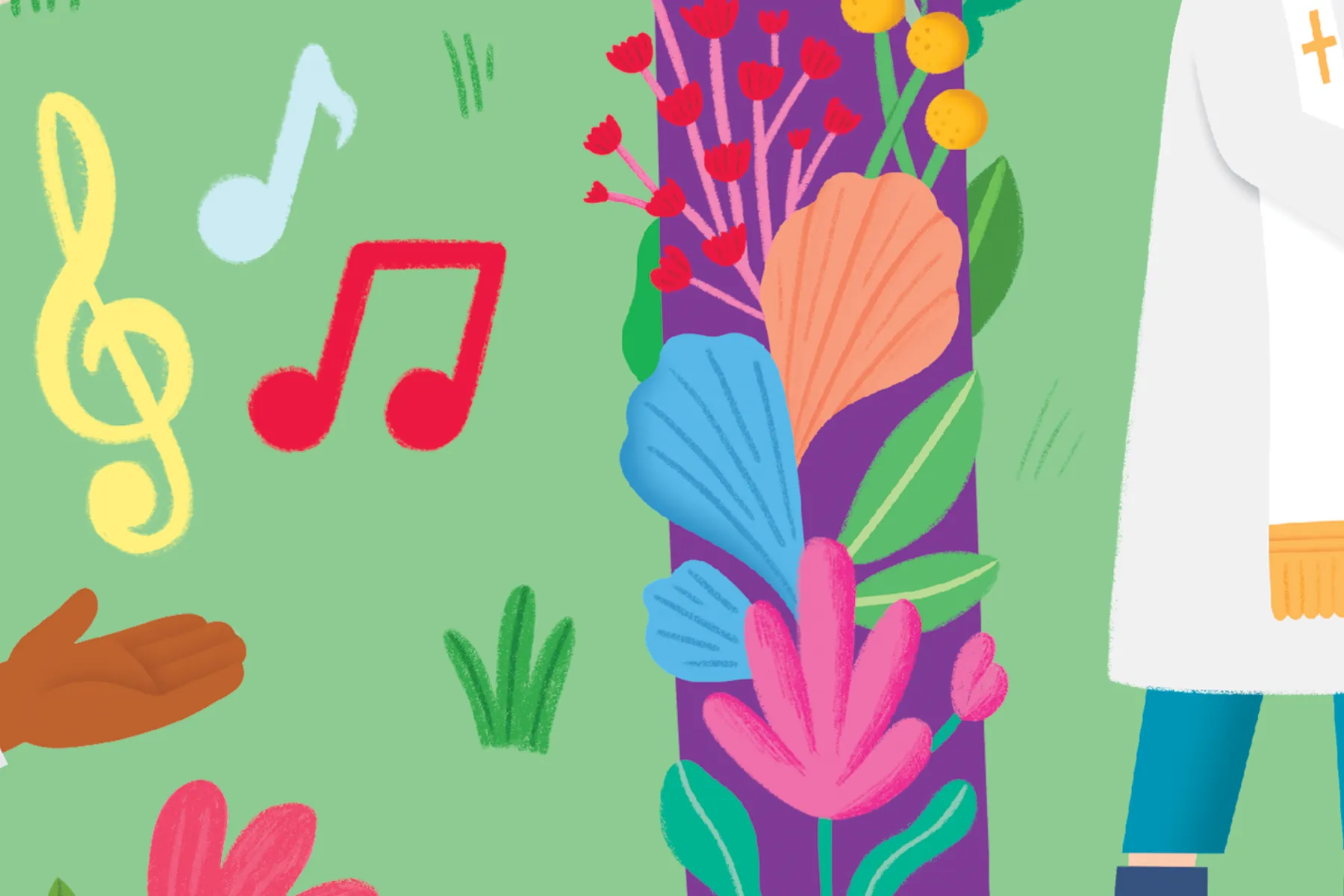“…commit their members to acknowledge one another in love and joy as believers in our Lord Jesus Christ, to hear anew the commission of the Risen Lord to make disciples of all nations, and daily to seek to obey his will.”
Paragraph 1, Basis of Union
Theological Culture
Throughout 2023 the Project encouraged a conversation about the Uniting Church’s theological culture. In releasing the Call for Papers on this theme, we offered the following working definition:
“The theological culture of the Uniting Church is that network of practices, institutions and texts which resource, sustain and extend the Uniting Church’s particular conversations, doctrinal decisions and prophetic speech about God, Christ and the world.”38
Through the Call for Papers, a National Forum and many informal conversations a rich and diverse collection of themes has emerged. It has been a vibrant and honest conversation. It is only a step in an ongoing journey which needs further growth and development. The nature, timing and format has meant some voices are under-represented or absent. As a church committed to a diversity of theological perspectives and to reflecting deeply upon God’s living Word this conversation must continue, broaden and deepen.
In reflecting on our theological culture people explicitly resisted the idea that the Uniting Church has a single ‘theological culture’. People also struggled to distinguish between theological culture and the culture of the Church. The focus on discipleship formation, mission and context remains strong. Alongside scripture, our ‘instruments of unity’, as described by Geoff Thompson, are foundational texts for our life. However, the lack of awareness of some of these is a source of frustration. This may point to the gap between our aspirations and our reality.
Explicit areas of weakness identified include:
- Theology/theologies embedded in a culture of colonisation and ‘whiteness’.
- A lack of biblical and theological literacy related to a failure to theologically resource and engage lay people.
- A culture of ‘over-intellectualising’ faith has fed a disconnect between ‘scholarly’ and ‘ordinary’ theology.
- The perception that theology is not relevant to some in our Church.
At the National Gathering on Theological Education there was a time of intentional reflection on what we had learned about the Uniting Church’s theological culture. Key emerging themes included:
- The centrality of the Covenant and revised Preamble to our theological conversations, enriching us with Indigenous theology, spirituality and biblical interpretation.
- The need to strengthen our cross-cultural, inter-cultural and multilingual conversations within and about our theological culture.
- Finding places to encourage dialogue across diverse theologies and perspectives, including the courage to have and stick with hard conversations.
- The value of critique of our theological culture, helping us recognise our conscious and unconscious biases.
- The need for our theological conversations to be visible and accessible with all invited and able to participate as part of our discipleship.
In response to the conversation, further work has occurred on our definition of theological culture. The following is a revised definition which responds to a range of the feedback provided:
“The theological culture of the Uniting Church is the network of practices, institutions and texts which expands, critiques and disciplines the Uniting Church’s theological imagination. Embodied in the discipleship of members of the Uniting Church in their many relationships and responsibilities, it produces pastoral wisdom, prophetic speech and doctrinal decisions about God, Christ and the world.”
Footnotes
- “Call for papers: our theological culture,” Act2 Project, accessed on 15 January 2024, https://act2uca.com/theological-culture. ↩︎
Life-giving Communities of Faith and Discipleship
